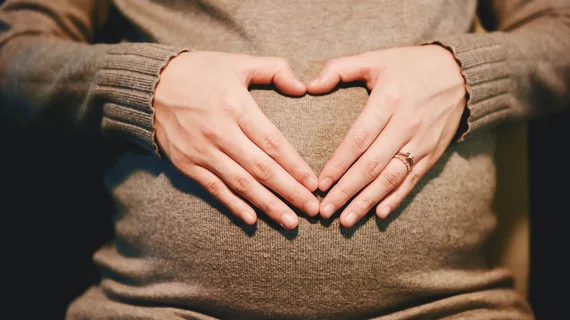COVID-19 vaccination during pregnancy is not associated with adverse outcomes
Women who get vaccinated against COVID-19 during pregnancy do not face additional risk of negative birth outcomes compared to those who are unvaccinated, according to the results of a large study published Tuesday.
In fact, pregnant women who opted for a vaccine were not associated with preterm or small-for-gestational-age (SGA) birth, experts reported in the Centers for Disease Control and Prevention Morbidity and Mortality Weekly Report. The group analyzed more than 40,000 live births for their findings.
Soon-to-be mothers remain concerned about vaccine safety, representing a strong barrier to wider acceptance. And while the absolute risk of severe illness associated with COVID-19 during pregnancy remains low, such women with symptoms have a higher risk of ICU admission, ventilation and even death compared to non-pregnant women with the disease, the authors explained.
“Together, these findings reinforce the importance of communicating the risks for COVID-19 during pregnancy, the benefits of vaccination, and information on the safety and effectiveness of COVID-19 vaccination during pregnancy,” Heather S. Lipkind, MD, with Yale University, and co-authors added.
For their investigation, the team retrospectively assessed 46,079 live births between December 2020 and July 2021. Women were ages 16 to 49, and 10,064 were vaccinated while the remaining 36,015 were not.
The majority (98.3%) received a vaccine during their second or third trimester. Looking at shot types, most opted for an mRNA vaccine from Pfizer/BioNtech (54%), followed by Moderna (41%) and Johnson & Johnson (4%). For two dose vaccines, approximately 82% received both shots.
Overall, the prevalence of preterm and small-for-gestational-age birth were 6.6 and 8.2 per 100 live births, respectively. Vaccination was not associated with an increased risk for either outcome, the authors explained, further reinforcing the safety of vaccines.
The CDC currently recommends pregnant women seek out COVID vaccines (and boosters), along with those trying to get pregnant or who are breastfeeding.
Lipkind et al. cited at least four limitations to their research, including potentially missed vaccinations and limited data availability regarding a history of preterm or SGA births.
“Despite these limitations, the findings from this retrospective, multisite cohort of a large and diverse population with comprehensive data on vaccination, comorbidities, and birth outcomes add to the evidence supporting the safety of COVID-19 vaccination during pregnancy,” the authors concluded.
Read the entire study here.

